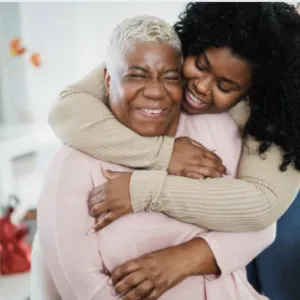
Following on with similar findings from their research, Tim Banks from Carers Trust conducted interviews with carers from racially minoritised communities that highlighted many practical barriers they experienced in their caregiving roles. Language barriers were one important example identified and included not being able to communicate using English but also difficulty making sense of complex medical jargon often used by professionals. Strikingly, it was found while carers have a ‘poor fit’ regarding service provision, when it came to Black carers there was no fit.
Finally, Peter Alleyne from ReThink Mental Illness spoke about his role as Director of Equity, Inclusion and Involvement. He shared that Black service users with their own lived experience of mental health conditions are involved in the design of their policies, campaigns, and service provision, as a means of elevating their voices. This is implemented through the charity’s lived experience advisory board.
ReThink Mental Illness also has a carers advisory board that provides a valuable role in contributing to the direction of the charity and quality of the services it provides. Peter highlighted the carers advisory board does not, currently, have any carers from Black communities, which highlights obvious issues about representativeness and a gap when ensuring diverse programmes. However, the charity has enlisted regional advisory panels to provide a voice to a broader range of communities at a local level to better co-produce services.